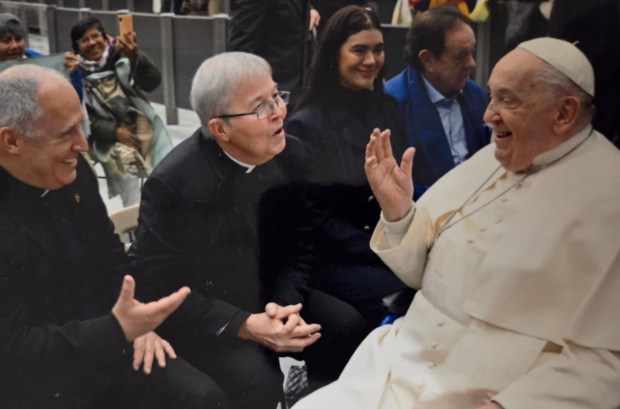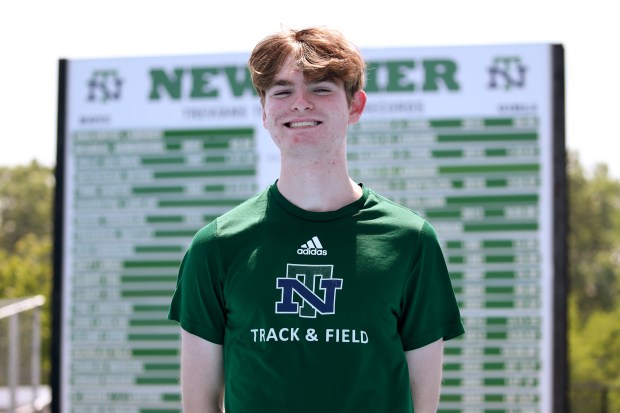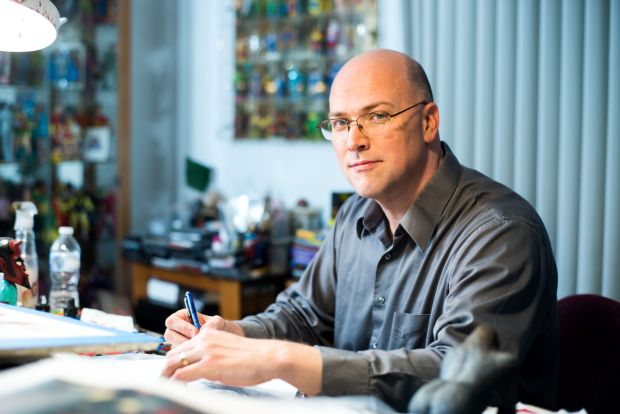In the wake of the death of Pope Francis, people all over the world spoke of what the pontiff meant to them. Rev.Jerry Gunderson remembered his meeting with the pope just a few months ago.
Gunderson, the temporary administrator at Lake Forest’s St. Patrick Catholic Church, said he traveled to Rome in January as the representative of Cardinal Blase Cupich, Archbishop of Chicago, to the Illinois Patrons of the Arts of the Vatican Museums.
While seated in a group of six, Gunderson observed Pope Francis entering a large conference room on his wheelchair for the traditional Wednesday audience. He had a prominent seat, enabling him to meet Pope Francis.
“I mentioned I was from Chicago and he said with a big smile, Ahh Cardinal Cupich.”
Gunderson noted it was a brief conversation, but he thanked Francis for his efforts as pontiff.
“I just wanted to let him know that I really appreciate the work he has done,” he said.
As he looked back on the approximate 12-year papacy, Gunderson listed Pope Francis’s interactions with the public as a major accomplishment.
“His humility, his strong leadership and his willingness to go out to the margins and preach the gospel and to lift up the poor and the downtrodden,” he said.
He was impressed with Pope Francis from the start, warmly recalling Francis’s initial greeting to the world in 2013 following his election by his fellow cardinals.
“I will always remember the night he came before the world for the first time and how he asked people to pray for him,” Gunderson said. “That was a very different way to begin and I think he has consistently shown that humility.”
Just a few minutes later, Pope Francis rode the bus and paid his hotel bill, recalled Gunderson.
“Those actions were symbolic of what we could expect in his papacy to come,” he said.
Throughout the papacy, Gunderson was particularly impressed with the compassion Pope Francis displayed toward migrants.
“I think he challenged not only our nation but Europe to accept migrants and to realize these people were refugees in need of shelter,” Gunderson said.
Another chapter of Francis’s papacy was the fallout from the clerical sex abuse crisis. While opinions differed on how well Francis handled it, the Vatican enacted some reforms.
“There was a need for a lot of healing in our treatment of those abused,” Gunderson said. “It starts with the dignity of all persons, and I think he achieved a great deal of healing.”
Gunderson did not cite any dissatisfactions in Francis himself, yet he was dismayed in the reaction in the reception of some of his efforts to change the Catholic Church.
“American Catholics of a more conservative bent have resisted some of the thrust of his ministry,” he said. “That more than anything else disappointed me.”
Looking ahead, Gunderson does not offer any insight on the election of the next pontiff. “We all have to pray the cardinals will choose the best person,” he said.
Yet he is hopeful – but not certain – the next pope will continue to build off Francis’s legacy.
“I hope for continuity, but each pope has the opportunity to shape the church,” he said.
Besides Gunderson, Professor Ben Zeller, the Chair of Religion at Lake Forest College, also reflected on the legacy of Pope Francis.
“His life and tenure have really re-shaped the Catholic Church,” Zeller said.
Zeller said Pope Francis will also be remembered for “real humanity,” citing examples of him being pictured with migrants, nursing mothers, prisoners, and the poor.
“None of this is theologically new for the Catholic Church, but what he showed is how much he loved the people and how much the church can be with the people,” Zeller said.
Zeller acknowledged Pope Francis was not successful in some of his larger efforts to spark change in the church. He cited examples of sending emissaries to war-torn Ukraine and the Middle East, but could not achieve a lasting peace.
“I think the Pope’s biggest disappointment will be the divisions that remain in the church and the world,” he said. “In a very utopian way, he called for a brotherhood for peace and care for the less fortunate and there has not been improvement. I think he would be disappointed his call fell on deaf ears.”
Zeller believed Francis wanted to clean up the church, specifically following the clergy sex scandals and some improper financial dealings. Like Gunderson, Zeller is taking a wait-and-see attitude on whether the changes Francis pursued within the church will now remain in place.
“I think that some of the Pope Francis’s reforms will make it better, but I think it very much depends on the next Pope if he really pushes for a continuation of some of the reforms,” he stated.
As for who he thinks the next Pope will be, Zeller senses the person will follow Pope Francis’s approach.
“It would be very hard to elect a Pontiff who wants to return the sort of monarchic elevation that was typical of the papacy,” he said. “However, I’ve been wrong before.”
Finally, Zeller looked at the overall transition now in place at the Catholic Church.
“The death of a pope is a moment of poignancy,” he said. “While I am not Catholic, I have observed for many Catholics, this is a moment of pain to see a leader who is much beloved pass away. There is a real sense of loss among Catholics, but equally, there is always an awareness of what is going to come next. It is a moment of transformation, so at the same time the Catholics are grieving a loss of a much beloved pontiff, they are cautiously optimistic to see what will come next.”
Daniel I. Dorfman is a freelance reporter for Pioneer Press.





